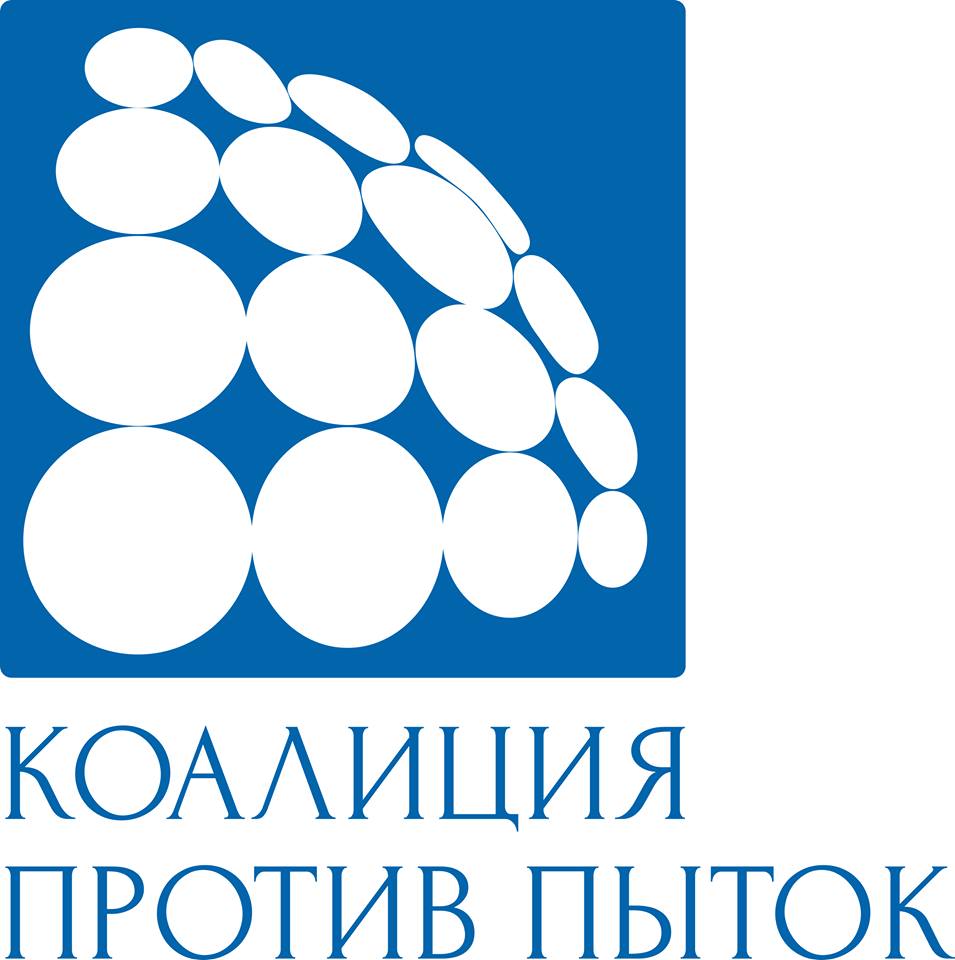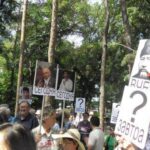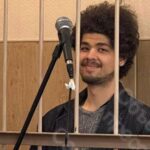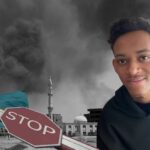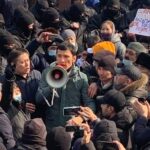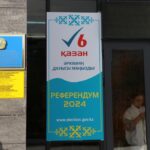As of 11 March 2022, the Kazakhstan NGO Coalition against Torture has received 138 reports of torture and other ill-treatment cases. Of these (in descending order), 37 came from Taldykorgan, Almaty – 31, East Kazakhstan Oblast – 14, Taraz – 14, Atyrau – 11, West Kazakhstan Oblast – 7, Kyzylorda – 6, Pavlodar Oblast – 6, Shymkent – 4, Aktobe – 3, Kostanai – 4, Karaganda – 1.
Of the total number of grievances, 11 were from women and 127 from men, including 13 from minors. In response to 58 grievances, the Coalition assigned attorneys to the victims to provide assistance on a permanent basis, 12 one-time visits were organised, in 4 cases access to psychological assistance was given, medical assistance was provided to 3 victims, in particular for the purchase of medicines.
Of all grievances supported by the Coalition 40 grievances have been registered in the Unified Register of Pre-Trial Investigations (UPRD) under Article 146 of the Criminal Code “Torture”, 3 cases have been registered under Article 362 of the Criminal Code of the Republic of Kazakhstan (Abuse of power or abuse of office) and the investigation is underway. According to the monitors’ information, expert examinations are being carried out in 31 criminal cases. No grounds for registration in the UDRR have yet been found by the registering authority in 3 cases and the cases have been handed on for “internal review”.
More than 40 cases have been reported by the Coalition to the UN Special Rapporteur on Freedom from Torture.
The following situation is observed in the investigation of torture cases monitored by the Coalition:
- In accordance with the investigative jurisdiction under the Code of Criminal Procedure (CCP) of the Republic of Kazakhstan the local departments of the Anti-Corruption Agency (Anti-Corruption Service) have jurisdiction over investigation of torture, in some regions under the supervision of the Office of Special Prosecutors of the General Prosecutor as part of the IIIT (Interdepartmental Investigation and Intelligence Team).
- In most cases, the police – the Internal Security Departments of local Police Departments (ISDs) – handle initial review of reports of torture. After that, they either submit the cases for registration in the URPI (Unified Register of Pre-Trial Investigations) and then to the departments of the Anti-Corruption Agency for further investigation in accordance with the jurisdiction under the CCP, or they limit themselves to their own internal review. It depends on whether or not the ISD of the Police Department finds evidence of a criminal offence, in a reported case torture (Article 146 of the Criminal Code of Kazakhstan). In other words, the decision to register or not to register information about torture in the URPI is made primarily by the offices of the Ministry of Internal Affairs (DIS), including also in case of complaints about the actions of internal affair officers. In Kostanai, in one case of torture, the investigation of which is monitored by the Coalition, the police are investigating both the case of this man in connection with his participation in the January events and the application of the same man of torture against police officers (by the Internal Security Department).
- As far as the application of any protection measures for victims in torture cases is concerned, the Coalition is not aware that such measures have been applied anywhere. This is explained by the fact that neither the victims nor their attorneys apply for protection measures. In a number of cases involving detainees accused of various criminal offences during the January events (e.g. in Almaty), the custodial deterrence was changed to non-custodial deterrence. But it is unlikely that the decisions to change deterrence were made out of concern for the safety of torture victims, as the torture cases have been initiated after the change to non-custodial sentence. In Atyrau, in one of the torture cases, the investigator prompted that the victim should apply for protection measures, but the victim declined because, according to his attorney, the victim did not need protection measures at that time. In Taraz, despite the suspect’s complaint of torture in the January events, his accusation continues to be investigated by the same investigator who, according to the victim, tortured him. This forces the victim, to relive the torture he suffered each time he sees the investigator. Meanwhile, the victim himself continues to stay in the pre-trial detention facility, which, one might recall, is under the jurisdiction of the Ministry of Internal Affairs in Kazakhstan. In Taldykorgan, employees of the Anti-Corruption Service, when explaining to torture victims the protection measures which they said should be taken, said that to protect the victims and their relatives, they would be placed in a rented flat which would be guarded, almost as under arrest, for two months and that their families were unlikely to like it. After hearing such an explanation, many of the victims rejected the proposed protection measures. *For reference: under Article 23 of the Law on State Protection of Persons Participating in Criminal Proceedings, “protection measures taken must not infringe on the housing, employment, pension and other rights of protected persons and other persons”.
- Forensic medical examination (FME) on torture is not carried out in all regions. For example, in the East Kazakhstan oblast, in all cases of torture or less severe unlawful treatment that the Coalition is aware of, no forensic medical examination has been carried out to date. As noted by attorneys, in Almaty, no medical examinations have been carried out in pre-trial detention facilities, but only after the transfer of suspects to a non-custodial regime by independent experts at the initiative of attorneys. In most cases, the attorneys report that the forensic medical examination conducted by the state has formally assess the condition of the person at the time of examination, i.e. long after the torture had taken place, almost in the absence of injuries, and ask for a repeat or an examination by a board. A similar comment is true to a psycho-psychiatric examination. The attorneys note that the questions put to the experts by the investigators indicate that the investigators are interested in raising doubts regarding torture reports. In all cases, the attorneys working with the Coalition note that the state expert examination on torture did not meet the standards of the Istanbul Protocol (United Nations Manual on the Effective Investigation and Documentation of Torture and Other Cruel, Inhuman or Degrading Treatment or Punishment).
- Speaking about the number of the police officers accused of torture who have been detained or suspended during the investigation, the Coalition, like all Kazakhstanis, is aware of only one such case in (the detention of a criminal police officer during the pre-trial investigation of a case of mass and extremely cruel torture against, among others, Azamat Batyrbayev and others). In other torture cases handled by the Coalition, the situation is the same as in the Atyrau torture cases – “not a single officer has yet been suspended”, said attorney Aibar Kosymbayev (Atyrau). In Ekibastuz, Pavlodar Oblast, the attorney’s attempt to have the police officers suspected of torture suspended from office was unsuccessful – the local Anti-Corruption Service which investigates the torture case denied the attorney’s motion.
- In general, in all torture cases, the attorneys working with the Coalition note numerous procedural irregularities. Reportedly no investigations are actually taking place: “no investigative actions have been carried out since the start of the pre-trial investigation” (East Kazakhstan Oblast).
The Coalition is extremely concerned about the way torture cases of the January events are being investigated. Many victims of torture cases are uninformed or sceptical about the possibility of protection measures being provided to them. The forensic examination of torture cases is superficial. Investigative measures that must be conducted in cases of torture are not carried out, or at least the victims or their attorneys are unaware of them. The Coalition is also not aware of any cases of restraint, let alone detention, used against the perpetrators of torture identified by the complainants. Many victims of torture do not believe that reports and complaints of torture will be properly investigated and that perpetrators will be adequately punished.
The Coalition will continue to monitor the situation with investigations into torture in the aftermath of the January events.
The Coalition stands ready to provide legal and psychological assistance to victims (or alleged victims) of torture and other unlawful treatment.
Reports of torture, cruel, inhuman, degrading treatment by law enforcement or other government agencies, or the bodies or individuals involved, can be submitted to the Coalition’s coordinating organisation:
KIBHR Head Office in Almaty
Offices 423 and 428, 4a, microdistrict 8, Almaty, 050035.
Anna Solodova, lawyer, coordinator of legal and psychological assistance throughout the Republic of Kazakhstan
+77081120938, smirnova.ig.anna@gmail.com
The Coalition must remind that the right to freedom from torture is an absolute right that cannot be limited under any circumstances. No statute of limitation or amnesty or settlement of the parties apply in case of commission of a criminal offence under Article 146 of the Criminal Code ‘Torture’.


